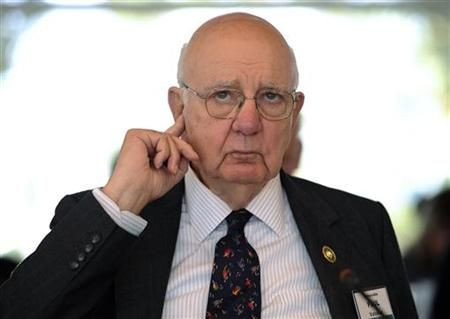Paul Volcker, Regulation Icon, Freed Fannie Mae From Oversight

Paul Volcker, the former Federal Reserve chairman and a great proponent of new bank regulations, was a key enabler in the rise and eventual collapse of Fannie Mae (OTC: FNMA), the government-sponsored enterprise focused on mortgage financing, according to a new book.
James R. Hagerty, a reporter for the Wall Street Journal and the author of "The Fateful History of Fannie Mae," wrote that Volcker was hired as a consultant by Fannie in the wake of the savings-and-loan crisis in 1990. Volcker said in a March 1990 report that Fannie would "maintain its solvency" despite the turmoil in the markets and the possibility of a bailout would be "remote."
In the wake of those statements, Fannie and its sibling agency, Freddie Mac, escaped stronger regulations and were required to hold less than one-half as much capital as big banks. In September 2008, both GSEs were bailed out by the U.S. government when the credit markets froze and their investments collapsed as mortgage borrowers defaulted en masse.
Volcker told the Journal that he felt Fannie wasn't "completely clean" on its mortgage data, suggesting that its book of business was stronger than it was. But he noted that Fannie's portfolio was much smaller two decades before the collapse, and it did survive the smaller financial busts before 2008.
Still, Volcker's ties to Fannie underscored the GSE's influence in Washington, which, as noted by Vanity Fair, it used to boost its stock price to record highs during the mid-2000s housing boom. But that attitude led to many enemies, particularly in the Republican Party.
Since the recession, Fannie has been greatly diminished. Shareholders were basically wiped out in the government takeover as the stock plunged, and the company was forced to surrender its lobbyists. Fannie and Freddie are now regulated by the Federal Housing Finance Agency, which has been intent on minimizing further taxpayer losses. To date, the two companies have required about $180 billion in aid.
On Friday, Fannie's stock was trading at 24 cents in the over-the-counter market.
© Copyright IBTimes 2024. All rights reserved.





















